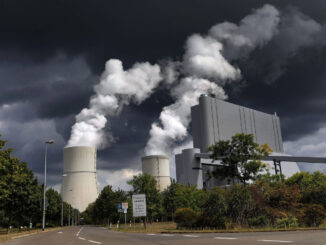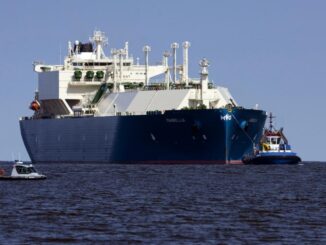
Germans stopped counting long ago, but the rest of the world still might be interested in what Europe’s largest economy is paying to accomplish its transition to net-zero carbon emissions. The short answer: There’s a reason Germans prefer not to know.
Consider the construction of new green electricity generation capacity, which is a small part of the net-zero transition. The latest estimate, from the Institute of Energy Economics at the University of Cologne, is that Germany faces a €60 billion ($65.5 billion) financing gap up to 2030 to build sufficient power generation.
That’s the investment that can’t be funded via utilities’ and generators’ retained earnings, which means that plugging the hole will require either higher electricity rates or more taxpayer subsidies. About €10 billion of that will have to be spent on new gas-fired and hydrogen back-up plants to keep the lights on when low wind or clouds keep windmills and solar panels from contributing to the grid.
That subsidy bill is the good news. Separate research from the same think tank recently estimated the total cost of approaching net zero at €1.9 trillion between now and the end of 2030. That’s around €240 billion a year, for those keeping score at home. We couldn’t believe it either, but we checked and this is only for Germany, not for the entire European Union. Also, this counts only new investment. Older windmills or solar panels that require replacing in coming years will cost extra.
That enormous figure is worth putting on the record because in practice it will remain hidden from the public. The report counts both private investment (including spending households will have to undertake to improve their energy efficiency) as well as public spending. If anything, more of the burden is likely to shift to the private economy in higher prices and more expensive mandates after a recent court ruling has made it harder for Berlin to offer direct subsidies.
This is a warning for everyone else because Germany, and Europe generally, is much further down the path of the net-zero transition than the U.S. Two decades and uncountable hundreds of billions of euros into its energy transformation, Germany’s net-zero bills never shrink and the promised boom in green industries and jobs never materializes. Does Washington feel any luckier?



